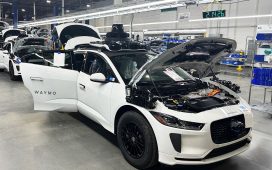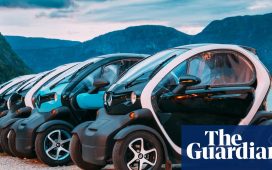By Edmund King, AA president
As we experience evolution on a scale never seen before when it comes to transport, the future of mobility and what this means for drivers remains a hotly discussed topic.
But are we getting too caught up on the 2030 date? We must look beyond the start of the next decade at what will transform mobility and what this means for fleets and drivers.
We recently brought together an expert panel at this year’s Goodwood Festival of Speed to discuss and debate The Future of Driving: Unlocking Possibilities.
I was joined by Karen Britton, head of future mobility, AECOM, Richard Cuerden, director, TRL, Andrew Woolliscroft, UK client care director, JLR, Toby Poston, director of corporate affairs, BVRLA (British Vehicle Rental and Leasing Association), and host Formula E presenter and e-sports ambassador Nicki Shields.
Here’s some of the key insights from the session.
Electrification is just one factor in our future
While there’s a strong emphasis on electric now, we are seeing the potential beyond electrification to connected cars, AI, preventative technologies, and information about journeys.
The future of mobility isn’t going to be shaped by electrification alone.
Karen Britton, head of future mobility at infrastructure consultancy AECOM, elaborated on this point in relation to decarbonisation.
She said: “We could give everybody an electric vehicle but we still wouldn’t meet our climate goals. Cycling and walking will be part of it, but we really need to bring people together to drive the solution.
“We need to communicate that if we do this well, we could lead the world. If communities and stakeholders push against solutions, it will become much harder.”
The driver experience is central to change
Andrew Woolliscroft, UK client care director at JLR, emphasised that evolving the customer experience would be critical. He said “It’s a real turning point for the industry.
“Technology, consumer behaviour, electrification, connectivity, and the growing rise of digital are all really exciting and force OEMs to go beyond just designing and making cars.
“This is especially important as we see significant new entrants to the electric vehicle market, this can be seen especially from China.
“This is the kind of disruption that will drive all OEMs to innovate and develop services that will make a difference to the customer experience.”
Toby Poston, corporate affairs director at BVRLA, said that car ownership would still be important for individuals. “Cost is impacting on car ownership now. The average car costs £39,000, nearly double what it was five years ago and the number of entry level cars below £25,000 has halved since 2021 (AutoTrader).
“But there’s an emotional aspect to car ownership. It matters to people. Cars represent personal freedom and you can’t take that away.
“We lead the world in terms of scientists and researchers, but we can get left behind if the policy and incentives are not right and we need to support the innovators.”
Speed of change is critical
Richard Cuerden, director at TRL, said that while change was here to stay, the future challenges are old ones. “TRL was formed 90 years ago because we had the cars but not good roads to drive on, they were polluting and lots of people were dying. Now, we also have to think about accessibility, acknowledge that our regulations are out of date, and have an industry that has developed over a hundred years and often to meet international rules.
“We must make rapid changes within a much tighter timeframe. Transport is the UK’s biggest contributor of greenhouse gas emissions and globally more children are killed on roads than from any disease.
“We need to harness system based planning and new technologies to revolutionise what we do in the future to make it safer and healthier.”
Looking further ahead
For me, there were five key takeaways from the event:
- Electrification alone isn’t enough to decarbonise transport.
- With the right investment and policy drivers, the UK has the potential to lead the world in creating programmes that the public can buy into.
- Collaboration among diverse stakeholders is vital to fast-track progress.
- Inspiring customers to demand action rather than feeling forced to adapt will be pivotal in accelerating decarbonisation.
- Learnings from existing projects around the world will speed up UK innovation and the future transformation of mobility.
As our managing director Dean Keeling said when closing the event: “We need to embrace the opportunities ahead and work together to understand why we need to change and how technology and innovation can deliver safer journeys.”
Drivers need to feel empowered to embrace change and we will continue to work with them to help them make informed choices and inspire them to feel excited about the future. As excited as we are.









